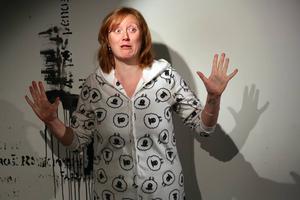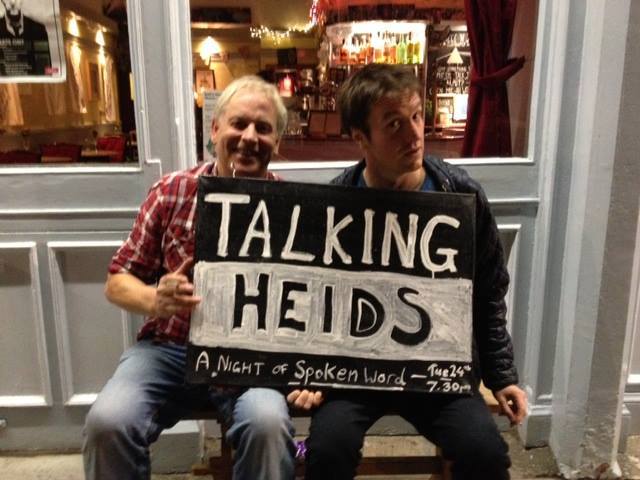The Poetics of Money #2: Fay Roberts
-by Fay Roberts–
A young man’s voiceover tells us about individuality and rebellion as conventionally beautiful folk drive and dance in cinematic high definition. Another young man’s voiceover talks of individuality and rebellion as conventionally pretty white people vault railings.
A single mother tells us about her relationship with her young daughter. A young man talks about his childhood home. Another talks about communication in the Snapchat era. A woman talks about pragmatic compassion as Elgar soars. They all appear candid and conversational.
These are recent national television adverts featuring spoken word artists performing poems they’ve written to market a variety of products. And opinion about it seems to be divided, publicly, between “hey, good for them” and “UTTER BETRAYAL OF PRINCIPLES DIMINISHING ALL PERFORMANCE POETRY!”
This commercial engagement has stirred up some extraordinarily loud antagonism, including a magazine article that didn’t seem to know whether it wanted to lambast the modern poetry scene or mourn its demise, blaming everything from the adverts to “identity politics” (don’t get me started) in slam competitions.
Roughly once or twice a year there’s some kind of controversy in the poetry world. They’re often bonding experiences – plagiarism’s a good one for that, because there’s a clear bad guy, right? Except when baseless accusations fly and lines are drawn on social media. Or when some poets get invited to Buckingham Palace and some of them refused to go and some who didn’t have the choice express distaste for those who accepted. Or when someone starts physically abusing other poets, but the truth is half-spoken only in certain circles and people step up to defend the ultimately indefensible…
And the more I think about it, the more I realise that we like to talk about the poetry/ spoken word community and yes, those who subscribe to and work for that to be a real, much-needed thing have started to make something tangible, vibrant, supportive and awesome, but, for the most part, we appear to be merely a group of people who have one thing in common: we like speaking our words aloud for audiences.
And we like to talk about how Spoken Word is a really old artform actually, especially when certain poets get snooty about the shallow, vaudeville razzamatazz of performance poetry with its terribly declassé tendencies and reliance on tone and body language to carry the message, but as a modern movement? We’re barely starting.
And nowhere is that clearer than in the opportunities afforded to spoken word artists to gain awards, plaudits, and meaningful exposure, never mind make enough money to live based purely on performing. Compare us to any other performance or creative form and really, what is there? Most full-time performance poets seem to make the bulk of their cash from teaching in one form or another, and vast numbers of us compromise by staying in the day job and worrying that we’ll never be a “proper” poet. Spoken Word has only very recently been included as an official genre in the Edinburgh Fringe festival and, although its bandwagon is gathering zeitgeisty momentum, ambitious performers are still placing themselves in the categories of Theatre or Comedy, presumably for the sake of awards and the summoning of audiences.
But I don’t remember people taking to social media to make hyperbolic statements about how ‘page’ poets “selling out” to greeting card companies ruins poetry and wrecks poets. Why is spoken word to be held to higher account? It’s more scary than any other performance form I’ve ever engaged in – these are my words, spoken by me. It’s an incredibly exposing experience. Is that why people need it to have more integrity? But what does that actually mean?
It’s probably pretty clear by now where I sit – if someone wants to earn money making an advert using their spoken word skills, fine. To my mind, they have the right to make whatever they want with their words and voice, and to settle their own consciences accordingly. And we have the right to critique the quality of the poem, and to debate the relative ethical merits of the organisation involved. Yay freedom of speech! What we don’t have any right to do, to my mind, is lay out opinions as facts and make sweeping statements about how one poet’s decision to trade off their reputation as a performer is damaging all performance poetry and poets.
And I don’t care how long you’ve been making a living from performance poetry; I don’t believe that your opinion is any more worthy than anyone else’s. Some of the more recent vituperative statements have been couched in terms of “advice” or “stirring up debate”. Unfortunately, they seem to have shifted the tone from the existing debate to people feeling stung and belittled by the unsought judgement.
To my mind, it’s not those who’ve chosen to work with commercial organisations that are causing tension among spoken word artists, but those who’re laying down the law that need to re-examine the effect they’re having. (Note to those denigrating the commercial poets by comparing them to “prostitutes” and/ or “sucking corporate cock” – not only is this whorephobic, its assumption that those who choose to perform fellatio are immediately of a lesser status leads us neatly into a barely tacit attitude of misogyny and homophobia from those touting themselves as morally superior socialists.) There’s a phrase that Christians use: hate the sin, not the sinner. So rail against the capitalist system by all means, but try some compassion for those who have little choice but to work within it.
And if, as these critics are so keen to point out, the commercial poets are damaging our reputation in the eyes of the general population, how much worse does this very public bickering and denigration look? We are all of us, at any given time, compromising on our work, our art, our lives. I, for one, would rather regret a commercial decision based on the need for stability than engaging in something that looks remarkably like bullying fellow artists.
This article was the result of an open invitation for poets to share their thoughts on the Nationwide debate. You can read Sophie McKeand’s take here.




